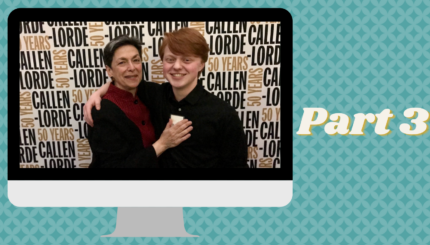We’re taught that “no means no.” But what consent looks like is changing, and it’s not just for sex anymore.
Consent Today
Consent, the agreement to engage in one activity, one time, is an active and ongoing discussion about boundaries. As greater awareness of the necessity of consent spreads, what consent actually sounds like is also changing. The absence of a no, no longer implies a yes. Silence is not a yes. The shift to an affirmative “enthusiastic yes” model where the presence of a “yes” is sought out makes sure that everyone is clear on who wants what to happen.
Consent cannot be given when:
- There is an unequal balance of power, such as in the case of an employer and an employee or a teacher and a student
- One or both parties are intoxicated or inebriated in any way
- One or both parties are under the pressure of intimidation or threat
- One party is asleep or unconscious
- The request or proposition is ambiguous and uncertain in nature
Consent can be revoked at any time for any reason. Before and while consent is given, it is important to take in the facial and body cues that the other person is giving you. This can include smiling, nodding yes, and making direct eye contact. Be sure to watch out for sudden tenseness, stillness, or avoiding touch as these may be nonverbal signs that the person may no longer wish to consent to the activity at hand. It is also crucial to note that involuntary physiological responses do NOT imply consent, as they can occur even when someone has not consented to an activity.
Everyday Consent
You probably don’t realize it, but every day, all day, you ask people for consent. Consent is about respecting personal boundaries. Nomore.org, a campaign dedicated to ending sexual violence discusses how “The goals of everyday consent mirror those of sexual consent-making another person feel heard, safe and comfortable…” Communicating openly and being transparent about your wants, needs, and boundaries is asking for consent. And by reciprocating that energy and respecting someone else’s, you are acknowledging their consent.
Giving and receiving permission happens more often than you think:
- Mask-Wearing
- In a post-pandemic world, we have all gotten much more comfortable asking for and receiving consent. We acknowledge people’s comfort and respect their bodily autonomy when they tell us that they would rather give us a wave than a hug. Same when we ask if we can take off our masks in the space we’re entering- we’re asking for consent.
- Secrets Being Kept Secret
- When your friend confides in you about a personal topic, keeping their private information private is a form of respecting their boundaries.
- A Big Deal
- When we tell people that we need some time before we can talk about that big emotional event that happened earlier today, we are demanding consent.
Consent for Tomorrow
What it all boils down to is this: consent, and setting boundaries both personally and professionally, are vital for your independence and autonomy as an individual. If you’re swamped with work, and your coworker asks you to take part in an additional project, learning how to say no protects your time, prioritizes your comfort, prevents you from being too overwhelmed, and allows you to conserve emotional energy.
Discussing your feelings openly and with transparency pushes you and the people around you to be honest with themselves and to be real with others, especially when someone feels that a boundary has been crossed or when things start to go south. Ramani Durvasula, Ph.D., a professor of psychology at California State University says that “At the end of the day, the person who gets hurt by that is you. It’s a really important piece of self-preservation, self-respect and self-care to be able to set healthy boundaries.” That is the best way to safeguard your well-being.
When you are assertive in what you want and don’t want, and are clear in your communication, you are helping to bolster your self-esteem. When you call the shots in your own life, you know you are worth something, and you tell others that you are valuable. Because you are! And that’s worth speaking up about.






